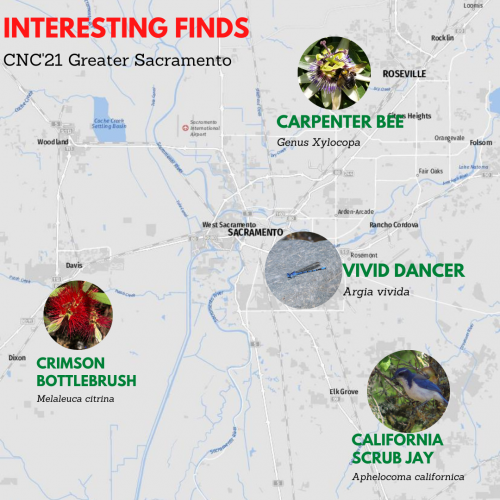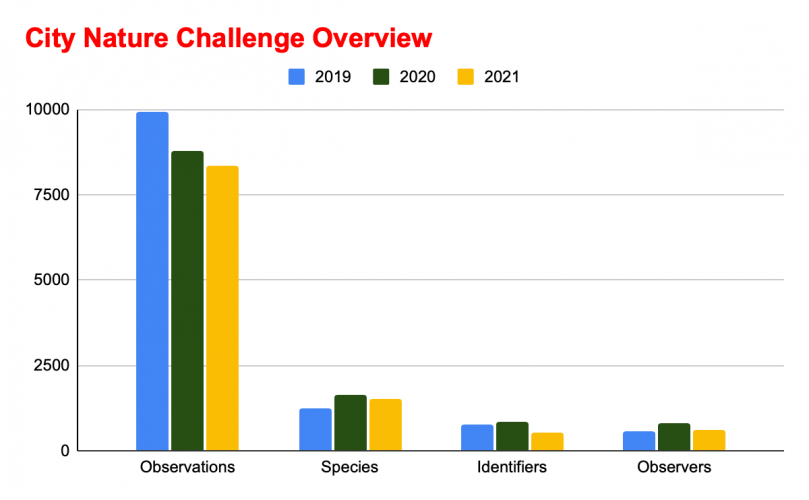An Overview of the City Nature Challenge
Alexandria Tillett Miller
What is the City Nature Challenge?
The City Nature Challenge is a collaborative international bioblitz that started in 2016 as a competition between Los Angeles and San Francisco. The objective for the challenge is to motivate people in their surrounding area to get outside and document wildlife and general biodiversity. In 2017, the City Nature Challenge went national, and one year later, became a world-wide event.
City Nature Results for 2021
Five years later, The City Nature Challenge has amassed more than 1 million users in 419 cities around the world. In a record breaking year, over 52,000 people participated contributing to over 45,300 species documented, including over 2,100 rare or endangered species observations.
Infographic of observations in the Greater Sacramento Region
This year in the Sacramento region, there were 8,363 observations, over 1,500 species, and nearly 600 observers.
Despite challenging times, participants from all over the Greater Sacramento region garnered impressive observations.
Overview of City Nature Challenge Sacramento statistics from 2019 to 2021
City Nature Challenge and Citizen Science
The City Nature Challenge is an excellent opportunity for community stakeholders to learn about nature surrounding them, and through documentation with iNaturalist, can even assist in studies to protect local biodiversity.
Environmental Education during COVID-19
The pandemic presented a unique opportunity for educators to address environmental education, and also the importance of outdoor learning. Traditional environmental science relies predominantly on school funding, education systems, and support. With new challenges brought to education programs this last year, learning about environmental science through online platforms, videos, and home environments have been a main focus point of teaching environmental science. While still considered a privilege in most curricula, and dependent on equity and access to outdoor spaces, environmental education and science has proven to be increasingly important, especially in moving past COVID-19 and towards more sustainable living systems.










